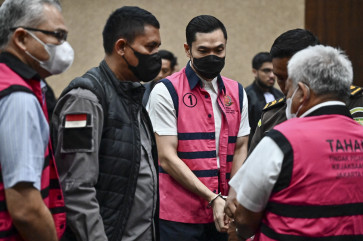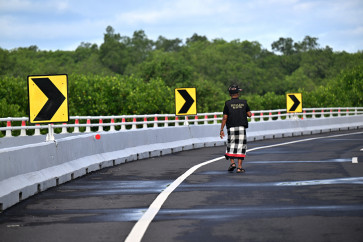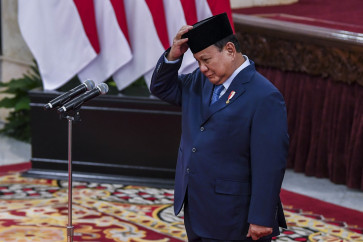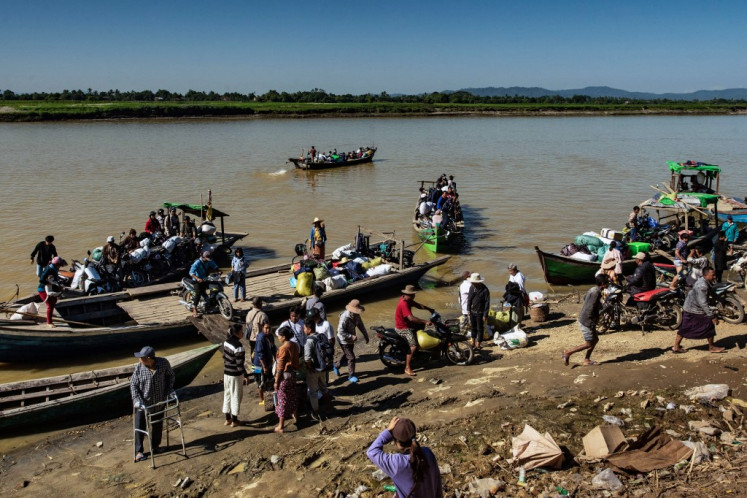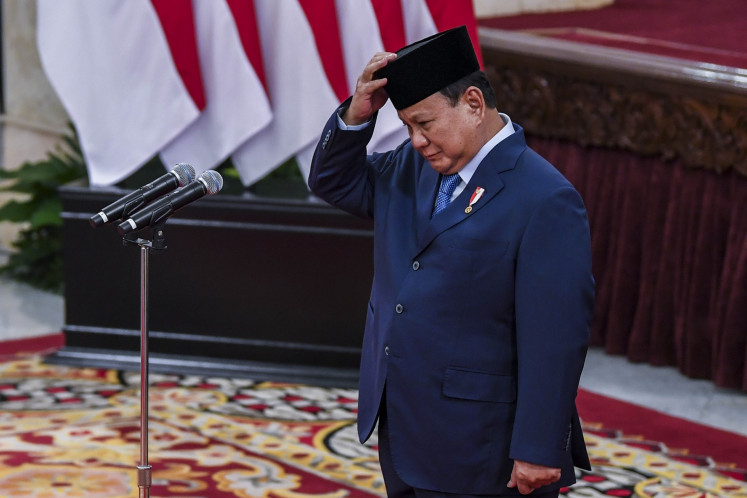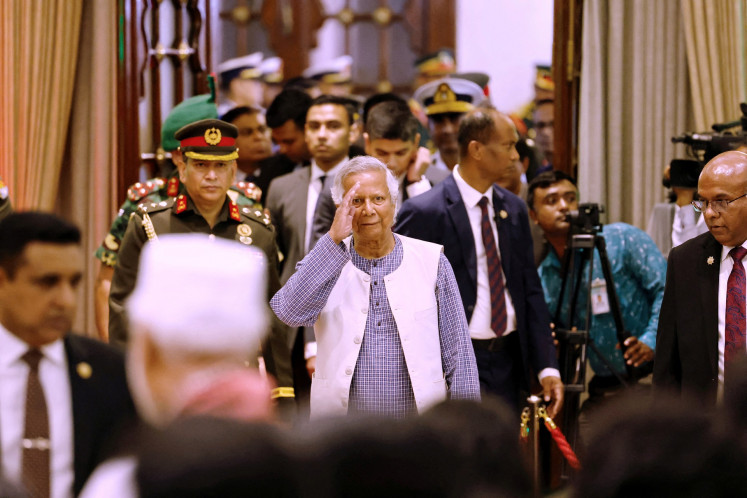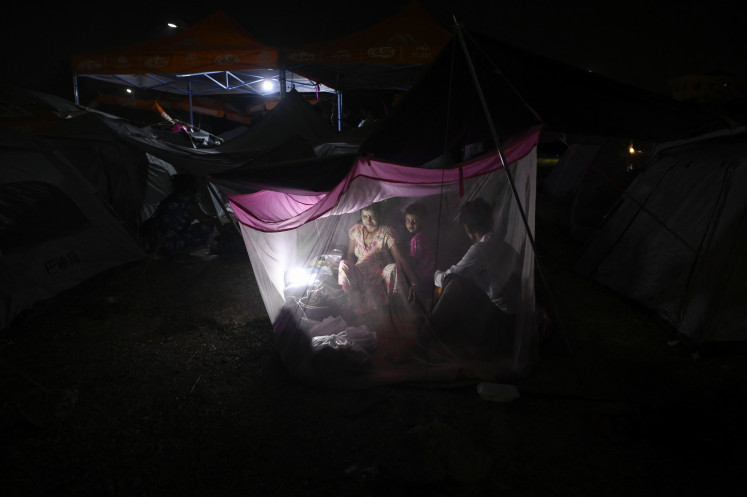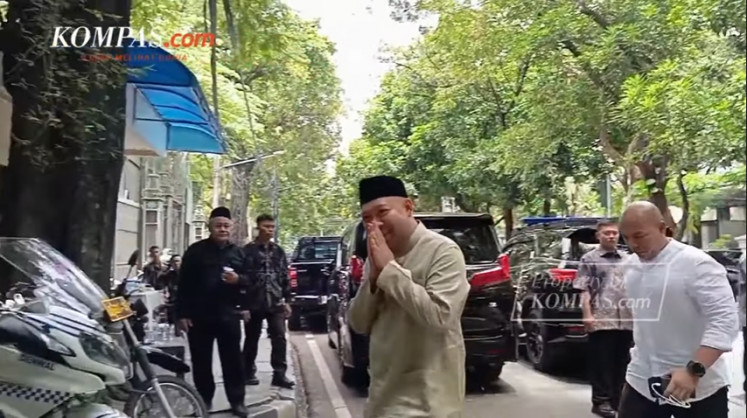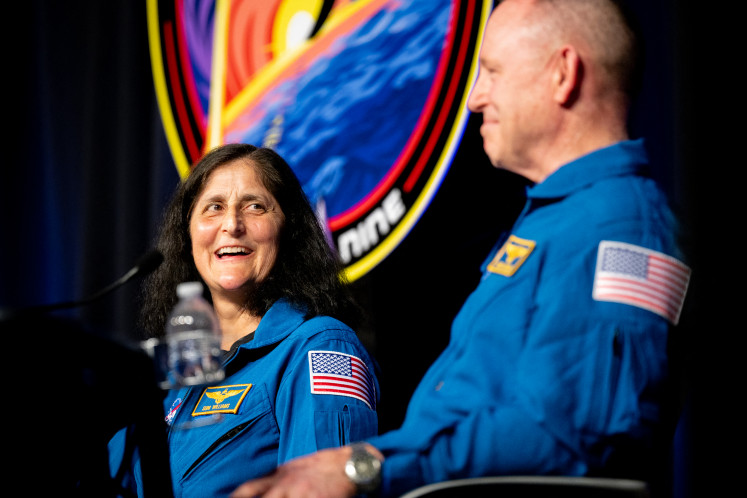Water is the lifeblood of Indonesia’s future
Programs like the food estate initiative aim to bolster food security, while renewable energy targets signal a bold shift toward sustainability.
Change text size
Gift Premium Articles
to Anyone
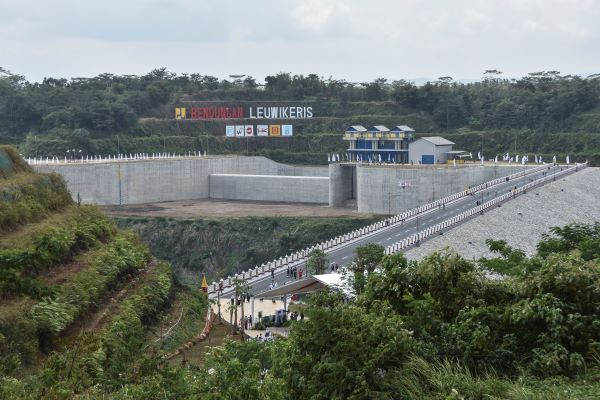 Leuwikeris Dam, on the border between Ciamis and Tasikmalaya regencies in West Java, is pictured on Aug. 29, 2024. The newly inaugurated dam will distribute water for irrigation, human consumption, the fisheries industry and power generation. (Antara/Adeng Bustomi)
Leuwikeris Dam, on the border between Ciamis and Tasikmalaya regencies in West Java, is pictured on Aug. 29, 2024. The newly inaugurated dam will distribute water for irrigation, human consumption, the fisheries industry and power generation. (Antara/Adeng Bustomi)
On March 22, as International Water Day was celebrated worldwide, Indonesia paused to reflect on a vital issue affecting millions.
Water, far more than a mere resource, serves as the foundation of health, dignity and progress. Yet, more than 20 million people, especially women and children in rural areas, still lack access to safe drinking water, a challenge echoed globally, where over 2 billion face similar struggles.
This year, the occasion coincides with Ramadan, a sacred time of reflection for millions of Indonesians. As we break our fast with water’s simple grace, we are invited to contemplate its profound significance in our lives and our nation’s future.
In Indonesia’s current development landscape, water stands at the heart of government priorities. The administration has committed to ensuring accessible and affordable water for all, a goal underscored by the National Medium-Term Development Plan.
However, water’s role extends beyond drinking and sanitation, it is intricately tied to food and energy security, two pillars of Indonesia’s national agenda. With a population exceeding 270 million and growing demands, the government’s focus on these interconnected sectors is both strategic and urgent.
Programs like the food estate initiative aim to bolster food security, while renewable energy targets signal a bold shift toward sustainability. Water is the thread binding these aspirations together.
Water powers both energy and food production globally and in Indonesia. Electric power plants account for roughly 20 percent of the world’s freshwater withdrawals, while agriculture consumes 70 percent.
In Indonesia, hydropower drives over half of renewable electricity, and irrigation sustains about 25 million hectares of paddy fields and farmland. The food estate initiative, spanning provinces like North Sumatra, leans on water management to turn degraded lands into rice fields, chasing self-sufficiency by 2030.
Meanwhile, renewable energy goals, now targeting 35 percent of the energy mix by 2034, rely heavily on water-intensive hydropower and geothermal. These efforts highlight water’s dual role as both a resource and a catalyst for progress, although they also reveal the growing strain on its availability as competing demands push it to its limits.
This is where synergism becomes critical in Indonesia’s pursuit of its national vision. An integrated approach, such as the Water-Energy-Food (WEF) Nexus is essential to reduce trade-offs across the water, energy and food sectors. Instead of addressing these sectors in isolation, where progress in one might compromise another, the WEF Nexus approach seeks sustainable solutions that advance all three sectors simultaneously. This approach could be a game-changer for Indonesia.
Practically, this means integrated planning must take root in Indonesia’s resource strategy. When shaping food estates, planners must chart water availability and energy demands alongside agricultural goals.
Renewable energy ventures, like geothermal plants in Sulawesi or solar farms in Nusa Tenggara, must weigh their water footprints and ripple effects on local food systems. With its vast natural wealth, from geothermal reserves to fertile soils, the country is uniquely positioned to pioneer this approach, balancing economic growth with environmental stewardship.
Technology lights the way for progress. UNDP Indonesia’s solar water pumps, piloted in remote villages, deliver a low-energy lifeline for irrigation, while the FAO’s precision agriculture tools, using sensors and data, sharpen water use, lifting yields without draining reserves.
The World Bank’s push for efficient hydropower systems complements this, trimming water demands in energy production. To further advance this integrated approach, the UNDP and the National Development Planning Agency (Bappenas), with the support from the United Kingdom Embassy, are crafting Indonesia’s WEF Nexus Roadmap, a blueprint to weave the WEF Nexus approach into actionable programs and projects, fostering innovation and collaboration, and proving that progress can thrive without compromising the future.
Imagine Ibu Dewi, a farmer in West Java, gripped by worry when a new geothermal plant threatens her farm’s vital water supply. Fortunately, the company has adopted the WEF Nexus approach. It recycles the plant’s water, sharing the surplus with Ibu Dewi’s farm, and providing sensors to optimize soil and water use.
Her rice fields thrive, and she soon grows vegetables for extra income. With the profits, she repairs her home and buys books for her children’s education. Through strategic policy and technology, lives are transformed, and sustainability is secured for all.
The path ahead demands collective action. As the WEF Nexus Roadmap takes shape, governments must weave it into national and regional plans, aligning water, energy and food goals. Businesses should invest in bold technologies, academia in research and training, UN agencies and their partners in driving global best practices, and citizens in conservation, everyone counts, every step needed.
As Ramadan invites us to reflect on water’s sanctity, let International Water Day inspire us to act. More than a resource, water is life itself. By embracing an integrated approach, we can honor its value, secure our future, and fulfill Indonesia’s promise of prosperity for all.
***
Norimasa Shimomura is the resident representative of UNDP Indonesia. Juliaty Sopacua is the senior advisor for program integration and development analysis for UNDP Indonesia.


